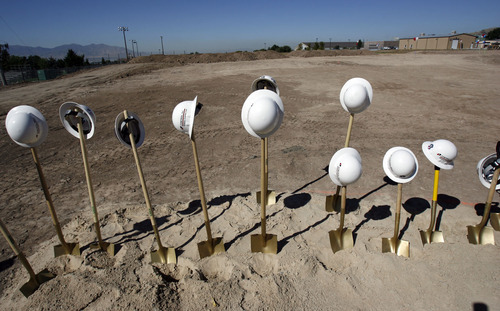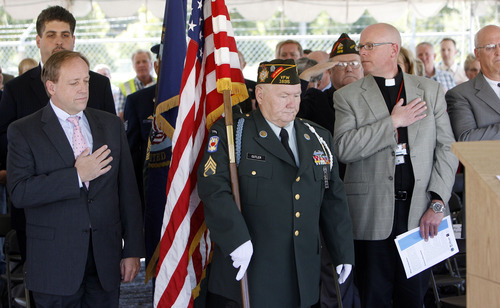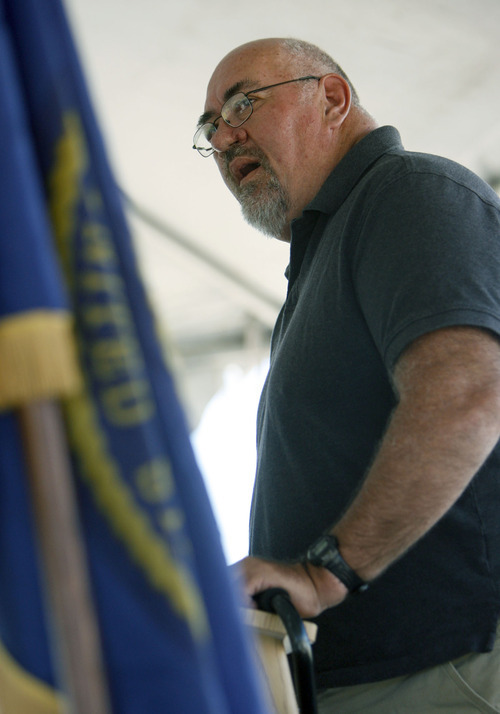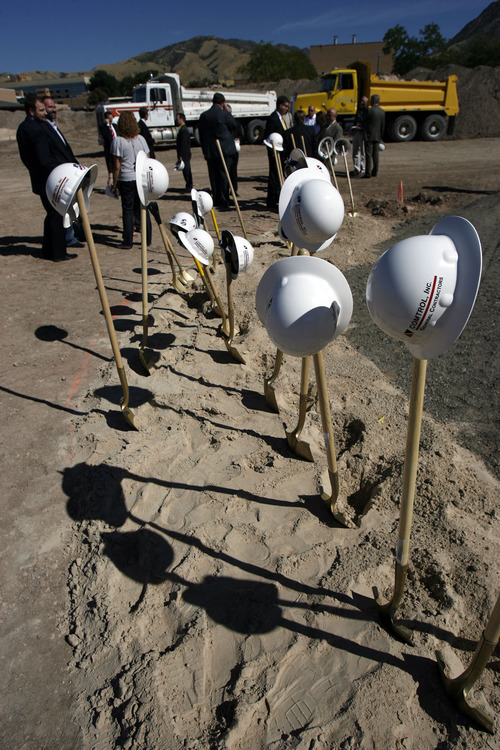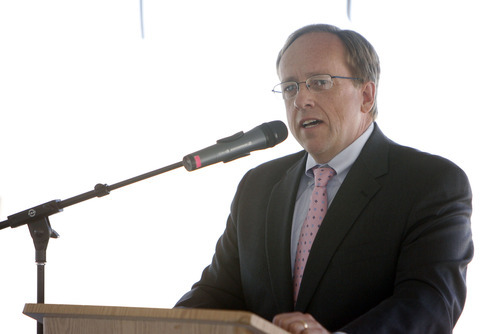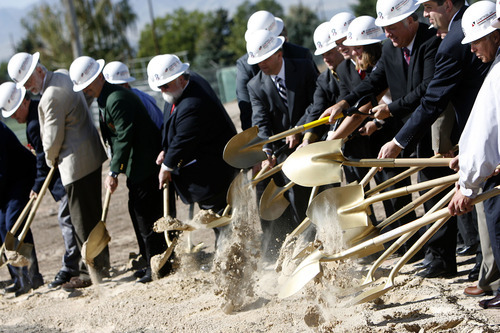This is an archived article that was published on sltrib.com in 2011, and information in the article may be outdated. It is provided only for personal research purposes and may not be reprinted.
New apartments on the V.A. hospital campus will help Utah make a dent in the number of homeless veterans, speakers at a groundbreaking said Tuesday.
Valor House, a $4.5 million joint venture of the Housing Authority of Salt Lake City and the George E. Wahlen Department of Veterans Affairs Medical Center, will be built southwest of the hospital.
It will include 72 bedrooms, each with a private bathroom, a lounge, an inside recreation area, 12 community kitchens and an outdoor basketball court.
"It will be a place that encourages these veterans to move on with their lives and join the mainstream," said Pete Dougherty, from the V.A.'s Veterans Initiative Office in Washington, D.C.
It is similar to efforts across the country that will serve 20,000 veterans, he said.
Michael Ferrin, a veteran of the Air Force, put a human face on the predicament faced by many veterans. He found himself homeless with a broken-down truck in Monticello last Thanksgiving, he said.
Thanks to help from the V.A., he said, he now has an apartment and is getting the medical help he needs, Ferrin said. "I feel secure now."
Steve Young, executive director of the V.A. Salt Lake City Healthcare System, said Valor House will help Utah attain the goal of no homeless veterans in three more years.
Secretary of Veterans Affairs Eric Shinseki two years ago set a national goal to eliminate homelessness among veterans within five years. "We're two years into it and we've reduced the number by half," Young said.
He credited the V.A.'s 10-year partnership with the Housing Authority for advancing the effort in Salt Lake City. "They are an absolutely fundamental, vital piece," Young said.
Earlier this month, Young sent a letter warning the Housing Authority that the V.A. will withhold funding from two properties — Sunrise Metro and Valor Apartments — if it does not improve management that is "endangering the health and safety" of veterans.
There was no mention of that demand, which the housing agency was given until Oct. 16 to resolve, at Tuesday's groundbreaking.
Bill Nighswonger, executive director of the Housing Agency, said the VA has been "incredibly accommodating." V.A. put up $2 million of the construction cost, a 75-year land lease at $1 per year, and $800,000 a year for operating expenses.
"Valor House," he said, "is my gift to help [veterans] heal and … to begin again."


